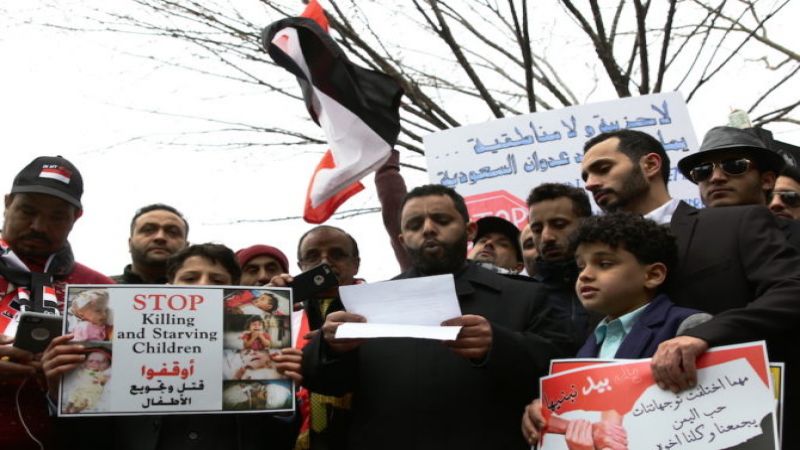
By Mallory Moench
Sarah Al-Silwi never felt ashamed of being American until she set foot for the first time in her parents’ war-ravaged home country – Yemen. In August 2016, she remembers, her cousin pointed at each demolished house on the road from the capital city to her grandmother’s village.
“This is the one that the Saudis bombed,” Al-Silwi recalled her cousin saying. “And also, your country, America, is killing us. The bombs that are being brought to Yemen are American bombs.”
Al-Silwi, a 17-year-old born and raised in the Bronx, refused to believe him until she learned the facts.
The United States transferred $115 billion in arms to Saudi Arabia from 2009 to 2016, according to the Center for International Policy. On May 19, President Donald Trump sealed another $110 billion deal on his visit to Saudi Arabia, the first foreign trip of his presidency.
The sale further embroils the U.S. in Yemen’s complex conflict. …
10,000 Yemenis are dead, two million live as refugees, and seven million are starving, according to the United Nations.
“They’re killing my cousins and my family members and my friends in Yemen,” Al-Silwi said. “I felt like I’d betrayed my own people. Now I realize that America isn’t as innocent as I thought when it comes to my country, when it comes to Yemen.”
Nearly 50,000 Yemeni-born Americans live in the U.S. according to the 2014 American Community Survey, although Yemenis estimate a much higher number. Now, this tight-knit community is conflicted over whether U.S. involvement in the war helps or hurts their home country. … some condemn the U.S.-Saudi coalition as violating human rights … The situation worsened after President Trump authorized a counter-terrorism raid that killed dozens in Yemen and twice tried to ban Yemenis from entering the United States.
But for many Yemeni-Americans, protesting on both sides of the conflict stirs fear. People who … criticize U.S. foreign policy worry they’ll become a target of surveillance like after 9/11.
“There have been a lot of programs that disproportionately affected the Yemeni-American community,” said Widad Indie, a New York City community activist, “and basically in some sense silenced them from being political or instilled a sense of fear of being too visible.”
Al-Silwi said some Yemeni-Americans worry that if they speak up, they’ll be accused of terrorism.
“We’re afraid that we’re going to be suspects,” she said. “It’s not like we hate the U.S., we love the U.S. It’s just that they’re killing our families.”
But not everyone avoids protesting. On the second anniversary of the war in March, a cluster of protesters gathered outside U.N. headquarters in New York City. Brandishing Yemeni flags and signs declaring “Stop Killing and Starving Children,” they blamed the coalition for the conflict.
Bodega owner Maher Addailem, 34, one of the protest’s leaders, has lived in Brooklyn since 1997, but his wife and three children are still in Yemen.
“We believe, and every person in Yemen believes,” he said, “that Saudi Arabia is paying the United Nations to keep their mouths zipped.”
…
President Barack Obama backed away from Saudi arms sales in December 2016 amid protests from human rights groups, but Trump doubled his support on his first foreign trip to the kingdom. Gerald Feierstein, ambassador to Yemen under Obama, urged military caution, but perceived no conflict between U.S. militarism and humanitarian relief.
….
“We are from this country. It is a good country,” Al-Silwi said. “We have the freedom to help others.”
Whatever their opinions, Yemeni-Americans jaded by the intractable conflict can agree on one thing: helping their home country.
“When people who are family and blood are dying, you don’t care anymore,” said Sukaina Hasan, 23, a recent college graduate from Washington D.C. “We put our political differences aside and worry about the economy and humanitarian crisis.”
Source: Voice of NY, Edited by Website Team